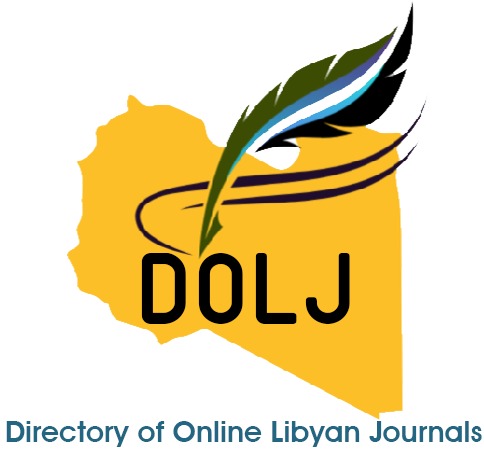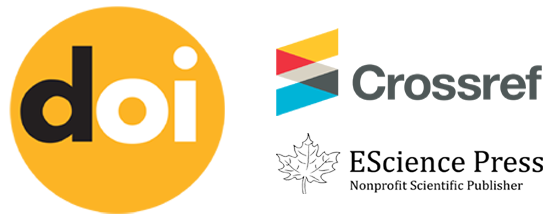The Importance of Implementation of Social and Behavioral Sciences in Undergraduate Medical Education
DOI:
https://doi.org/10.69667/lmj.2517108Keywords:
Medical Education, Social and Behavioral Sciences, Integrating, PhysicianAbstract
Medical education has traditionally focused on healthcare's biological and clinical aspects, often overlooking the critical role of social and behavioral sciences. However, as the field of medicine evolves, there is a growing recognition that these disciplines are essential in cultivating well-rounded and socially conscious physicians. Integrating social and behavioral sciences into medical education offers numerous benefits that significantly enhance the development of future healthcare providers. Firstly, it fosters a more holistic understanding of patient care by emphasizing the influence of social determinants on health outcomes, which ultimately leads to improved medical practices tailored to diverse populations. Furthermore, students equipped with knowledge of behavioral sciences are better prepared to engage effectively with patients, employing communication techniques that build trust and facilitate adherence to treatment plans. This interdisciplinary approach also promotes critical thinking and problem-solving skills, as students learn to analyze complex interactions between biological, psychological, and social factors affecting health. Moreover, early exposure to these principles cultivates empathy and cultural competency, essential attributes in a rapidly diversifying patient demographic. As a result, integrating social and behavioral sciences not only enriches the educational experience but also contributes to the production of more competent and compassionate physicians. Thus, this review article aims to explore the significance of integrating social and behavioral sciences into medical education.
ركز التعليم الطبي تقليدياً على الجوانب البيولوجية والسريرية للرعاية الصحية، متجاهلاً في كثير من الأحيان الدور الحاسم للعلوم الاجتماعية والسلوكية. ومع تطور مجال الطب، أصبح هناك اعتراف متزايد بأهمية هذه التخصصات في إعداد أطباء متكاملين وواعين اجتماعياً. يقدم دمج العلوم الاجتماعية والسلوكية في التعليم الطبي فوائد عديدة تعزز بشكل كبير تطوير مقدمي الرعاية الصحية المستقبليين. أولاً، يعزز هذا الدمج فهمًا أكثر شمولاً لرعاية المرضى من خلال التركيز على تأثير العوامل الاجتماعية على النتائج الصحية، مما يؤدي في النهاية إلى تحسين الممارسات الطبية لتتناسب مع فئات سكانية متنوعة. علاوة على ذلك، يصبح الطلاب الذين يكتسبون معرفة بالعلوم السلوكية أكثر استعداداً للتفاعل الفعال مع المرضى، باستخدام تقنيات اتصال تبني الثقة وتسهل الالتزام بخطط العلاج. كما يعزز هذا النهج متعدد التخصصات مهارات التفكير النقدي وحل المشكلات، حيث يتعلم الطلاب تحليل التفاعلات المعقدة بين العوامل البيولوجية والنفسية والاجتماعية التي تؤثر على الصحة. بالإضافة إلى ذلك، يساهم التعرض المبكر لهذه المبادئ في تنمية التعاطف والكفاءة الثقافية، وهي صفات أساسية في ظل تنوع ديموغرافي سريع للمرضى. ونتيجة لذلك، لا يثري دمج العلوم الاجتماعية والسلوكية التجربة التعليمية فحسب، بل يساهم أيضًا في إعداد أطباء أكثر كفاءة وإنسانية. لذا، تهدف هذه المقالة المراجعة إلى استكشاف أهمية دمج العلوم الاجتماعية والسلوكية في التعليم الطبي
References
College of Nursing and Health Sciences Nursing Master Project Publications | College of Nursing and Health Sciences | University of Vermont [Internet]. Available from: https://scholarworks.uvm.edu/cnhsmp
Grumbach K, Coffman J, Muñoz C, Rosenoff E, Center for California Health Workforce Studies, University of California, San Francisco, et al. STRATEGIES FOR IMPROVING THE DIVERSITY OF THE HEALTH PROFESSIONS [Internet]. 2003. Available from: https://www.issuelab.org/resources/11275/11275.pdf
Fratesi U, Wishlade FG. The impact of European Cohesion Policy in different contexts. Regional Studies [Internet]. 2017 May 19;51(6):817–21. Available from: https://doi.org/10.1080/00343404.2017.1326673
Dev S. Mental health for all [Internet]. 2021. Available from: https://doi.org/10.17760/d20416628
Melchert TP, Berry S, Grus C, Arora P, De Los Reyes A, Hughes TL, et al. Applying task force recommendations on integrating science and practice in health service psychology education. Training and Education in Professional Psychology [Internet]. 2018 Nov 29;13(4):270–8. Available from: https://doi.org/10.1037/tep0000222
Corvini M, Cox K, O’Neil M, Ryer J, Institute for Health Policy and Practice, University of New Hampshire. Addressing Childhood Adversity and Social Determinants in Pediatric Primary Care: Recommendations for New Hampshire [Internet]. 2018. Available from: https://chhs.unh.edu/ihpp
Schultz K, Griffiths J. Implementing Competency-Based Medical Education in a Postgraduate Family Medicine Residency Training Program. Academic Medicine [Internet]. 2015 Dec 30;91(5):685–9. Available from: https://doi.org/10.1097/acm.0000000000001066
Sheikh A. USING THE THEORY OF PLANNED BEHAVIOR TO EXPLORE COLLEGE STUDENTS’ PERCEPTIONS TOWARDS UNDERSTANDING THEIR HEALTH INSURANCE [Internet] [thesis]. St. John’s Scholar. St. John’s University; 2024. Available from: https://scholar.stjohns.edu/theses_dissertations
Maroufi SS, Bigdeli S, Fata L, Arabshahi SKS. Integrating behavioral and social sciences components into a competency-based MD program curriculum: A qualitative study on opinions of faculty members. Medical Journal of the Islamic Republic of Iran [Internet]. 2017 Jan 1;31(1):96–103. Available from: https://doi.org/10.18869/mjiri.31.17
Nair B, Khan S, Naidoo N, Jannati S, Shivani B, Banerjee Y. Progressive muscle relaxation in pandemic times: bolstering medical student resilience through IPRMP and Gagne’s model. Frontiers in Psychology [Internet]. 2024 Mar 13;15. Available from: https://doi.org/10.3389/fpsyg.2024.1240791
Poster Presentations Abstracts, 26th Annual Meeting of the International Association of Medical Science Educators, June 4–7, 2022. Medical Science Educator [Internet]. 2023 Feb 23;32(S1):23–123. Available from: https://doi.org/10.1007/s40670-022-01722-7
Nair B, Khan S, Naidoo N, Jannati S, Shivani B, Banerjee Y. Progressive muscle relaxation in pandemic times: bolstering medical student resilience through IPRMP and Gagne’s model. Frontiers in Psychology [Internet]. 2024 Mar 13;15. Available from: https://doi.org/10.3389/fpsyg.2024.1240791
Asalone K, University of Maine. The Importance of Social Science in Biomedical Education [Internet]. Honors College. 2017. Available from: https://digitalcommons.library.umaine.edu/honors/287
Karunathilake IM, Grant J, Rashid MA, Samarasekara D, Prihatiningsih ST, De Abrew A, et al. The Need for Accreditation in Medical Education to be based on Regional and National Health Priorities. South-East Asian Journal of Medical Education [Internet]. 2022 Dec 30;16(2):1–6. Available from: https://doi.org/10.4038/seajme.v16i2.538
Wajid G, Sethi A, Khan RA, Aamir HS. World Federation for Medical Education: Appropriateness of Basic Medical Education standards in Pakistan. Pakistan Journal of Medical Sciences [Internet]. 2019 Aug 8;35(5). Available from: https://doi.org/10.12669/pjms.35.5.882











